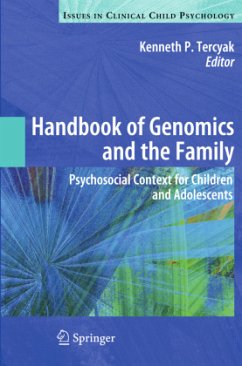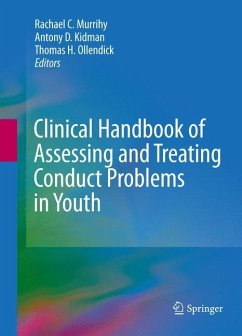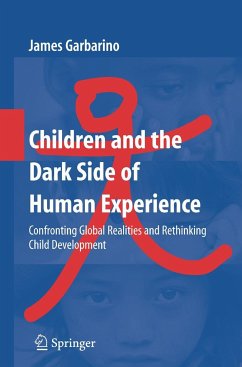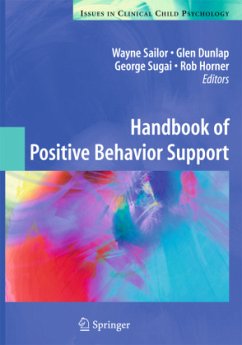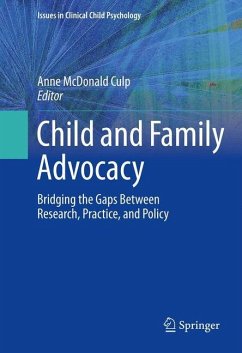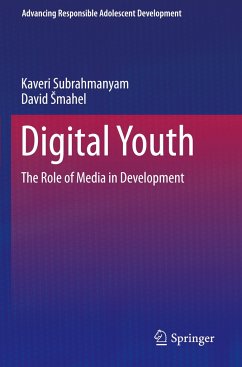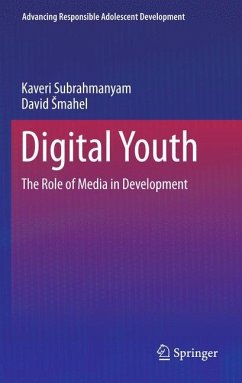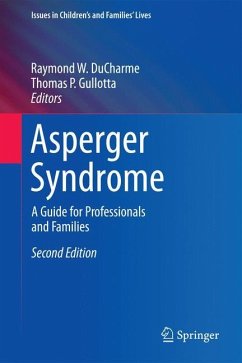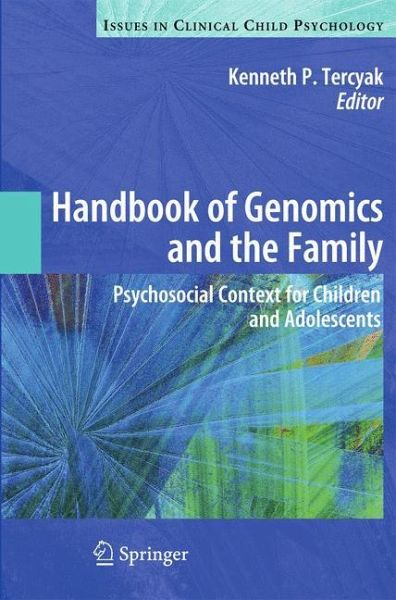
Handbook of Genomics and the Family
Psychosocial Context for Children and Adolescents
Herausgegeben: Tercyak, Kenneth P.
Versandkostenfrei!
Versandfertig in 1-2 Wochen
200,99 €
inkl. MwSt.

PAYBACK Punkte
100 °P sammeln!
Today's consumer can send a company a DNA sample and receive a detailed set of genetic test results in return all without ever visiting a health care provider. Although knowing one's personal risk for serious disease may lead some individuals to make more informed health choices, an ever-growing set of questions remains: Are predictive genetic tests meaningful? Can the results be harmful as well as helpful? In what ways can genetic information be used by health care providers to predict disease risk and optimize medical management within concerned families? Most important, how might the landsc...
Today's consumer can send a company a DNA sample and receive a detailed set of genetic test results in return all without ever visiting a health care provider. Although knowing one's personal risk for serious disease may lead some individuals to make more informed health choices, an ever-growing set of questions remains: Are predictive genetic tests meaningful? Can the results be harmful as well as helpful? In what ways can genetic information be used by health care providers to predict disease risk and optimize medical management within concerned families? Most important, how might the landscape of genetic testing affect the care of children's health?
Although there are no easy answers, the Handbook of Genomics and the Family details in one authoritative volume the challenges entailed by the latest genetic advances and offers insights into the potential translation of this knowledge in pediatric and family practice and public health. This timely and comprehensive reference introduces readers to the study of how genes, singly and in combination with each other and the environment, affect health and behavior; summarizes current findings on genetics and genomics in disease etiology and prevention; and provides family-focused perspectives relating to genetic counseling and education.
Key features of the Handbook include:
- In-depth background in genetics and genomics in relationship to disease etiology and epidemiology.
- Integrative frameworks for understanding genetics and genomics in the context of families.
- Considerations for communicating genetic and genomic information.
- Individual chapters on genetic and familial risks for specific diseases and conditions, including cancer, obesity, and Type 1 diabetes among children and adolescents.
- Training, ethics, and other emerging issues and controversies.
- Contemporary policies on genetic testing in children and families.
The Handbook of Genomicsand the Family is essential reading for clinical child and pediatric psychologists and psychiatrists, pediatricians and nurses, clinical geneticists and genetic counselors, and public health specialists as advances in genetics lead the way to more personalized models of health.
Although there are no easy answers, the Handbook of Genomics and the Family details in one authoritative volume the challenges entailed by the latest genetic advances and offers insights into the potential translation of this knowledge in pediatric and family practice and public health. This timely and comprehensive reference introduces readers to the study of how genes, singly and in combination with each other and the environment, affect health and behavior; summarizes current findings on genetics and genomics in disease etiology and prevention; and provides family-focused perspectives relating to genetic counseling and education.
Key features of the Handbook include:
- In-depth background in genetics and genomics in relationship to disease etiology and epidemiology.
- Integrative frameworks for understanding genetics and genomics in the context of families.
- Considerations for communicating genetic and genomic information.
- Individual chapters on genetic and familial risks for specific diseases and conditions, including cancer, obesity, and Type 1 diabetes among children and adolescents.
- Training, ethics, and other emerging issues and controversies.
- Contemporary policies on genetic testing in children and families.
The Handbook of Genomicsand the Family is essential reading for clinical child and pediatric psychologists and psychiatrists, pediatricians and nurses, clinical geneticists and genetic counselors, and public health specialists as advances in genetics lead the way to more personalized models of health.



